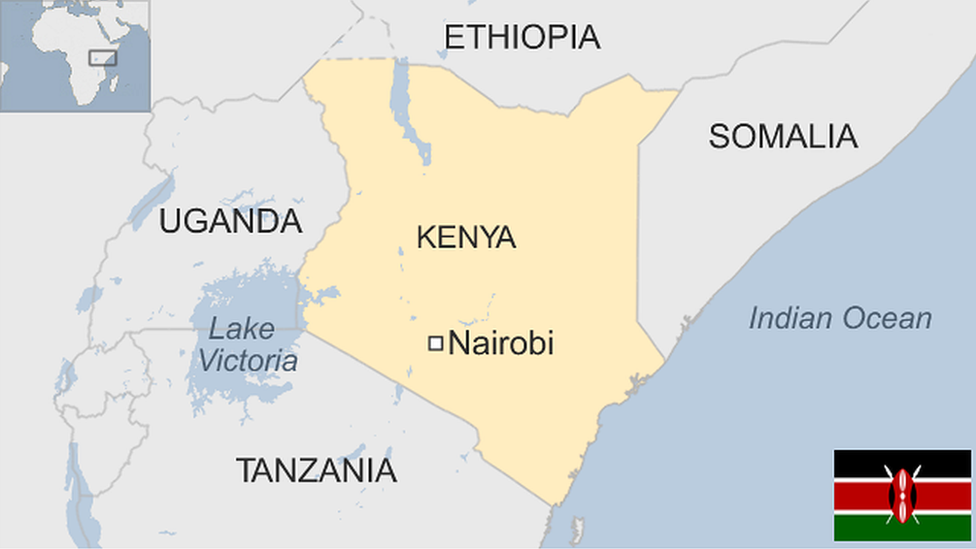Kenya's Patel dam bursts, sweeping away homes in Solai
- Published
The search-and-rescue effort is under way in Kenya
At least 41 people have died after heavy rains caused a dam to burst in Kenya, sweeping away homes across a vast area of farmland.
The breach happened on Wednesday near the town of Solai, 190km (120 miles) north-west of the capital, Nairobi.
The dead are thought to include children and women trapped in mud. The Kenyan Red Cross says it has rescued about 40 people so far.
More than 2,000 people are said to have been left homeless.
Local officials say the full extent of the damage is not yet clear. There are fears the death toll could rise as the search-and-rescue operation continues.
The heavy rains in Kenya and other regional states come after a severe drought which left millions of people in need of food aid.
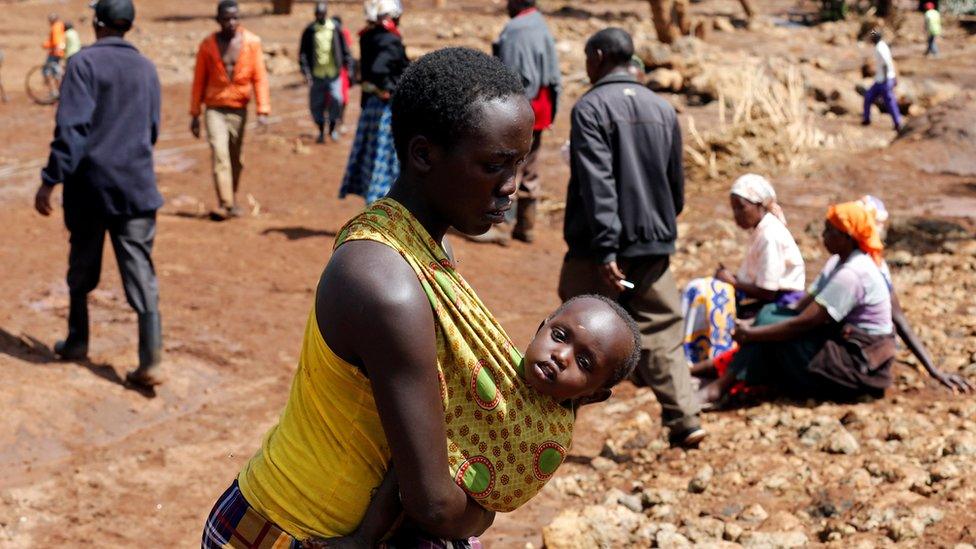
The dead included children and women trapped in the mud
Eleven bodies, mostly of women and children, were recovered at a coffee plantation, an unnamed police officer told AFP news agency.
It seemed that they had been fleeing but "could not make it due to the force and speed of the water from the flooded dam", the officer added.
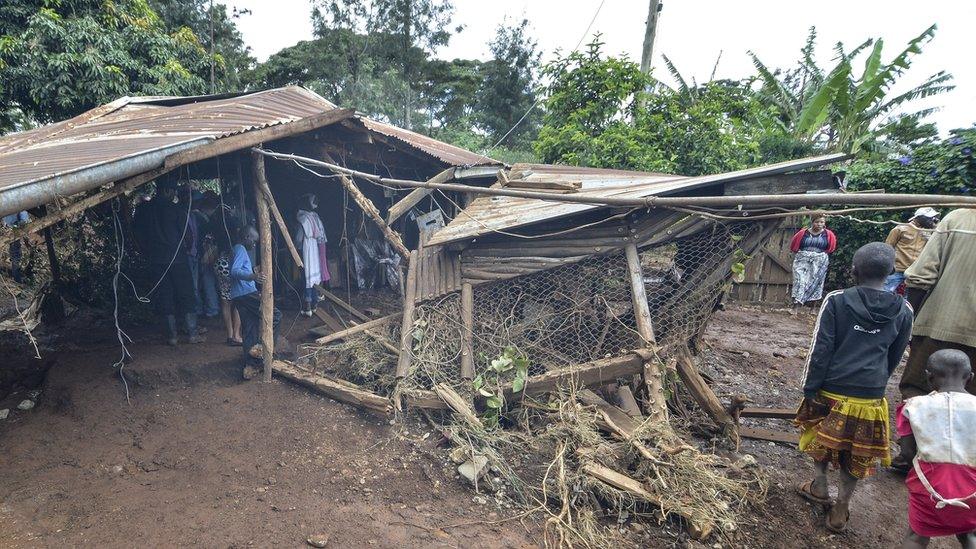
More than 2,000 people are said to have been left homeless
The Patel dam, located on private farmland, and reportedly used for irrigation and fish farming, broke its walls and swept away hundreds of homes downstream.
Much of the area was completely devastated as power lines, homes and buildings were carried away by the fast-running water.
A secondary school was also flooded, while a primary school was swept away.

A big tragedy
By Anne Soy, BBC News, Solai
Torrential rains are continuing to fall, hampering rescue efforts. Shocked and grieving survivors are sheltering under the canopies of remaining buildings.
Foundation slabs of the swept away buildings are lying exposed along a wide path, created by the raging water.
There is a deep gully running down the hill from where Patel dam burst. Household items, boulders and mangled iron sheets are strewn across the flood path.
Kenya Red Cross volunteers, the police, and military officers are at the scene.
It is being described as the biggest tragedy in Kenya since heavy rain started nearly two months ago.

The bodies of two women were discovered several miles away from the area affected by the bursting of the dam, the Reuters news agency reported.
Witnesses said they heard a loud bang before the waves swept through nearly 2km (1.2 miles) of farmland where many people live and work.
On Thursday, rescue workers brandishing shovels scoured through the rubble and mud, searching for survivors and victims
"The water has caused huge destruction of both life and property. The extent of the damage has yet to be ascertained," said Lee Kinyajui, governor of Nakuru County.
Miriam Karimi told AFP she had not been able to find her three children in the aftermath, including her four-year-old son.
"I'm so confused. I hope they are alive," she said.

Survivor Veronica Wanjiku Ngigi, 67, told Reuters that she was at home brewing tea when her son's wife rushed in to say they needed to get to higher ground as the dam had burst.
"It was a sea of water. My neighbour was killed when the water smashed through the wall of his house. He was blind so he could not run. They found his body in the morning," she was quoted as saying.
"My other neighbours also died. All our houses have been ruined," Ms Ngigi added.
Could other dams burst?
The Patel dam is one of three reservoirs owned by a large-scale farmer in the area.
Its walls are said to have caved in due to the high volumes of water following heavy rains that have been pounding the country.
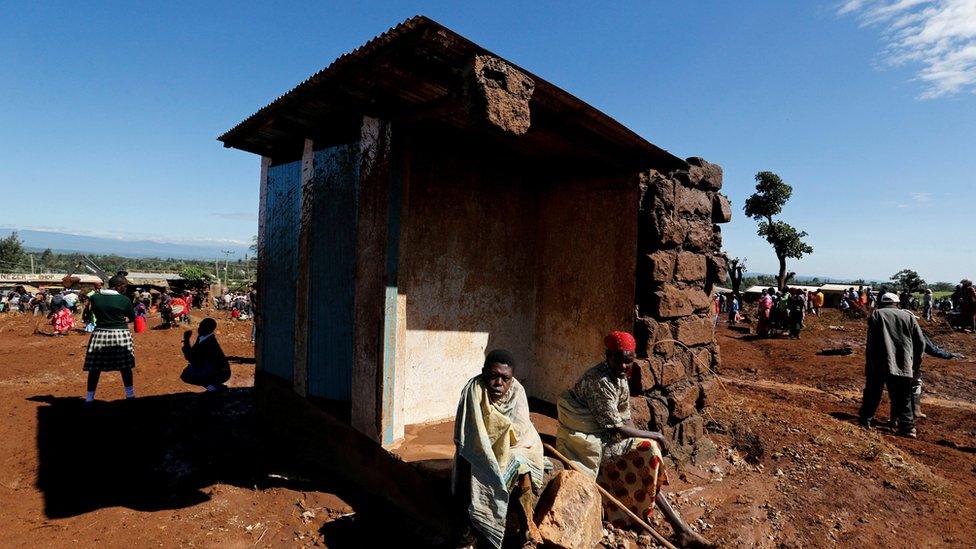
The flood swept through farmland, wrecking homes in its wake
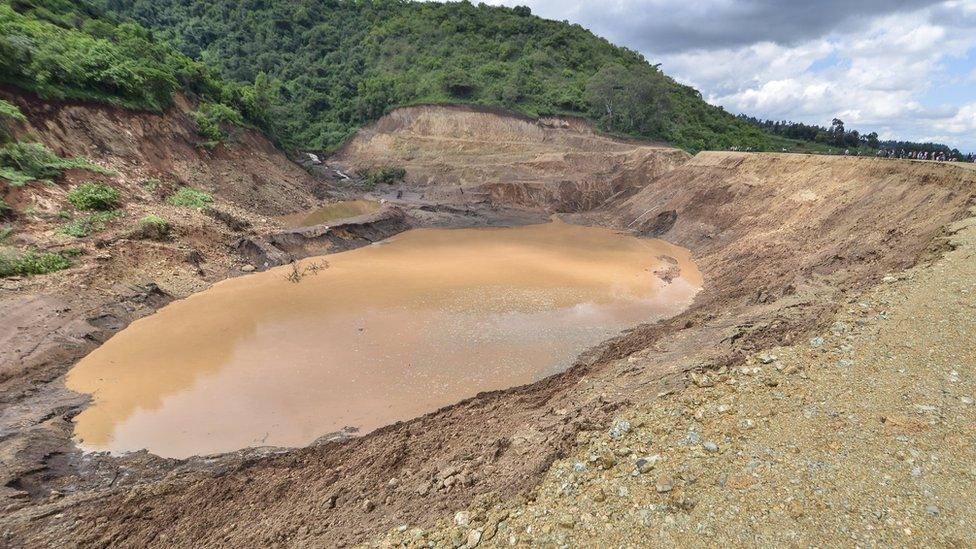
The burst dam was "a sea of water," one survivor said
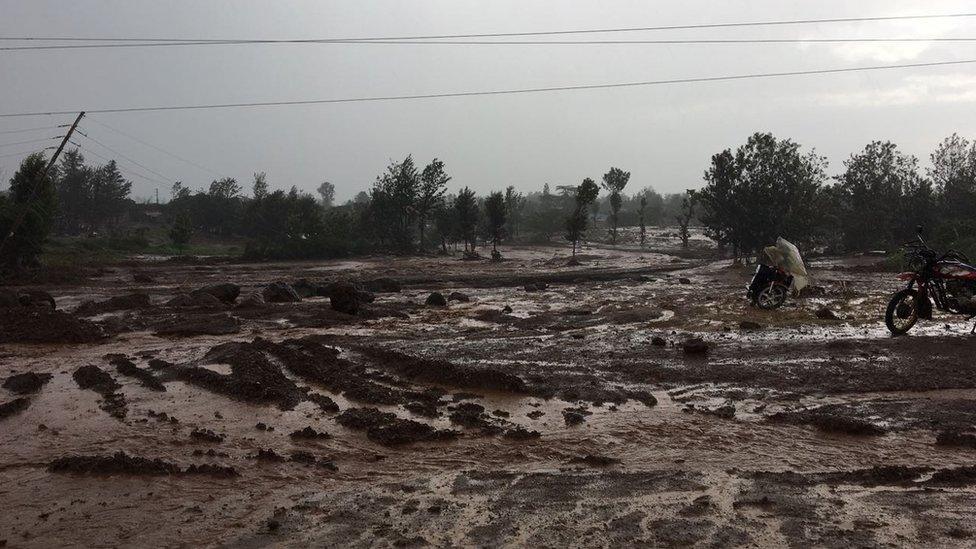
And it is still raining
Local leaders are now seeking to find out whether the farmer was licensed to erect those dams, amid concerns about the condition of the remaining two which are also said to be full, reports the BBC's Ferdinand Omondi in the capital, Nairobi.
He has not yet commented.
Before Wednesday's disaster, 132 people have died countrywide as a result of heavy rains since March, according to official statistics.
More than 220,000 people have also had their homes destroyed.
- Published7 May 2018

- Published4 July 2023
